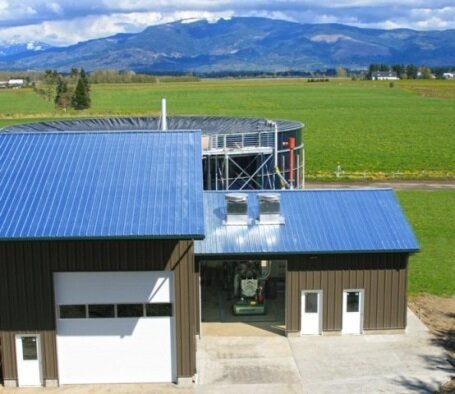Biogas plant features high-yield digester, efficient CHP engine, and gas treatment system.
CHP plant produces electricity and thermal energy for local grid and farm
Facts & figures

The dairy farm is situated 90 miles north of Seattle, WA, and owns and operates a Biogas Plant consisting of a high-yield anaerobic digester made by DARITECH, a combined heat and power plant using the 2G agenitor 212, and a 2G Gas Treatment system. The engine utilized is a thermodynamically optimized 400 kw biogas engine with MAN core, coupled with the patented 2G drives technology that has been specially developed for high-efficiency CHP operations. The gas treatment system includes a highly efficient gas drying system, as well as a carbon-based filtration system for the removal of H2S from raw biogas.
The CHP plant generates energy for more than 400 homes in Washington, producing close to 4,000 MW of thermal energy and 3,320 MW/h of electricity annually. This electricity is fed into the PSE grid. By using residuals as fertilizer and bedding, the dairy farm has improved its energy efficiency, reduced greenhouse gas emissions, and eliminated waste.
This project highlights the challenges involved in planning capital equipment investment in an industry characterized by challenging and creative funding options. It showcases the conflicts that arise when deciding between the risk of using outdated technology from existing product lines and the opportunity to select the most advanced and reliable technology.